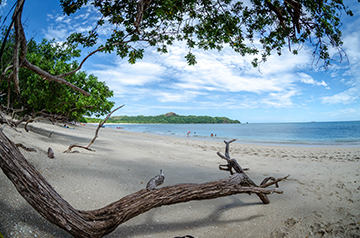Class to study in Costa Rica

A new biology course will send students around the world. BIO 122 will take students to a new location each semester, starting with Costa Rica this term.
August 21, 2019
Two AACC biology professors are offering a new, four-credit class that will take their students to Costa Rica this semester.
In Fundamentals of Ecology Travel Study—BIO 122—science students will travel to a different location around the world each semester to explore the interaction between organisms and their environment, according to biology professor Benjamin Weibell, one of two faculty members who will teach the class.
“I really love travel studies because it opens people up to learning,” Weibell said. “When we put ourselves in new situations, it opens our minds and we start taking everything in.”
So when students travel and learn new cultures, it opens their minds and allows them to look at things from a new perpective, Weibell said.
Weibell and biology professor Jessamy Rango plan to take as many as 16 students to Costa Rica for 13 days in January. The course runs from Oct. 21 to Dec. 15, plus the January trip.
Depending on the size of the class, each student will pay between $2,650 and $2,950, plus $400 for travel insurance, plus tuition for the course.
I’m really looking forward to it and the price is right,” said Tom Wilbur, who retired as AACC’s science lab manager in June and has enrolled in the course.
“For under $3,000, which includes a … trip to Costa Rica, airfare, accommodations and most meals, that’s a no-brainer,” Wilbur said.
Students will collect and analyze data, discuss their findings, identify species and do other lab work while they are in Central America.
Wilbur, who has already been to Costa Rica, said he is excited to visit the country again because he didn’t get to explore much of it when he was there the first time.
“I expect to learn more details about the different types of critters as well as learn about the geology of the area,” Wilbur said.
Next semester’s class will travel to a different location to study the ecosystems. “Costa Rica this year; Galapagos Islands next year,” Weibell said.











